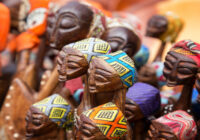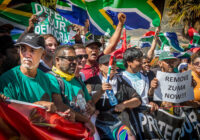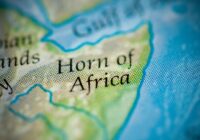In South Africa, there is a new branch of the ANC emerging that calls for radical change and advocates against corruption.
Riding on Nelson Mandela’s promise of freedom, equality and opportunity, the African National Congress (ANC) has exercised unchallenged electoral dominance over South African politics for decades. While South Africa has become an exceptional model of liberal democracy and economic development on the continent under the party’s leadership, the ANC is now facing a crisis.
The current head of the ANC and president of South Africa, Jacob Zuma, has downgraded both the democratic credibility and economy of the country through his scandals, cabinet reshuffles and corrupt dealings. Many South Africans have been increasingly angered and dismayed by Zuma’s misuse of public funds and disregard for protocol. Mass protests against Zuma and invigorated mobilization by the opposition suggest the potential decline of ANC hegemony. Increased inter-party competition, however, also has the potential to herald in a new era of democratic competition, which could result in a stronger and more accountable ruling party.
The opposition has begun to take shape in the form of protests and increased support for the ANC’s electoral competitors. On April 12, the discontent culminated in a mass protest of over 80,000 people — including representatives from all major opposition parties — when they marched on the government buildings in Pretoria. Many protesters were reacting to Zuma’s unceremonious firing of the finance minister and deputy finance minister at the end of March, which shook investor confidence in the South African economy.
In addition to the recent protest, the ANC is facing never-before-seen threats at the ballot box. The Democratic Alliance won three municipalities in the August 2016 local elections, more than any opposition party in the history of the country’s democratic rule. As further evidence of ANC fracture, a large number of candidates with competing visions for the future of South Africa are vying to be the new president of the ANC this December.
Within the crowded field, most candidates fall into two camps: pro-Zuma and anti-Zuma. The pro-Zuma faction is status quo, while the anti-Zuma candidates are running on platforms of change and targeting corruption as a main grievance with the current administration.
Nkosazana Dlamini-Zuma, President Zuma’s ex-wife, leads the contingent in favor of the current president. The former African Union chairperson has the president’s and the ANC Women’s League’s backing. Deputy President Cyril Ramaphosa — the leader of the anti-Zuma faction — came out strongly against the current president with a speech tying Zuma to corruption and state capture. Rampahosa has support from the South African Communist Party and the Congress of South African Trade Unions, but he will need to collect all sides of the anti-Zuma struggle to beat Dlamini-Zuma with her state backing in the December election.
TEST FOR DEMOCRACY
The significance of this internal battle in the ANC extends far beyond the borders of the country. South Africa has long been considered a bastion of democracy in Sub-Saharan Africa. However, some commentators contend that, during Zuma’s rule, South Africa has lost its exceptional edge due to the rampant clientelism, corruption and poor governance by the ANC.
 The enlivened inter-party competition on display during this election, therefore, could be a healthy sign. More competition means more critique of the current state of politics in South Africa and invigorated mobilization of people demanding new, accountable leadership.
The enlivened inter-party competition on display during this election, therefore, could be a healthy sign. More competition means more critique of the current state of politics in South Africa and invigorated mobilization of people demanding new, accountable leadership.
Early in his campaign, Ramaphosa is refocusing toward a people-centric ANC and away from the clientelistic practices of the Zuma era. In a speech in April, Ramaphosa called for the ANC to ask, “Why have the people turned against us?” Further, he lamented that the influence of a small group of private individuals in the government has “undermine[d] our economic progress and diminish[ed] our ability to change the lives of the poor.”
There is a new branch of the ANC emerging that calls for radical change and advocates against corruption. This factionalism has the potential to strengthen the ANC in the long run by increasing dialogue, calling out government corruption and fostering debate about the future trajectory of the party. Out of chaos, there is hope that South Africa will emerge as a stronger democratic partner.
*[Young Professionals in Foreign Policy is a partner institution of Fair Observer.]
The views expressed in this article are the author’s own and do not necessarily reflect Fair Observer’s editorial policy.
Photo Credit: Henrique NDR Martins
Support Fair Observer
We rely on your support for our independence, diversity and quality.
For more than 10 years, Fair Observer has been free, fair and independent. No billionaire owns us, no advertisers control us. We are a reader-supported nonprofit. Unlike many other publications, we keep our content free for readers regardless of where they live or whether they can afford to pay. We have no paywalls and no ads.
In the post-truth era of fake news, echo chambers and filter bubbles, we publish a plurality of perspectives from around the world. Anyone can publish with us, but everyone goes through a rigorous editorial process. So, you get fact-checked, well-reasoned content instead of noise.
We publish 2,500+ voices from 90+ countries. We also conduct education and training programs
on subjects ranging from digital media and journalism to writing and critical thinking. This
doesn’t come cheap. Servers, editors, trainers and web developers cost
money.
Please consider supporting us on a regular basis as a recurring donor or a
sustaining member.
Will you support FO’s journalism?
We rely on your support for our independence, diversity and quality.






